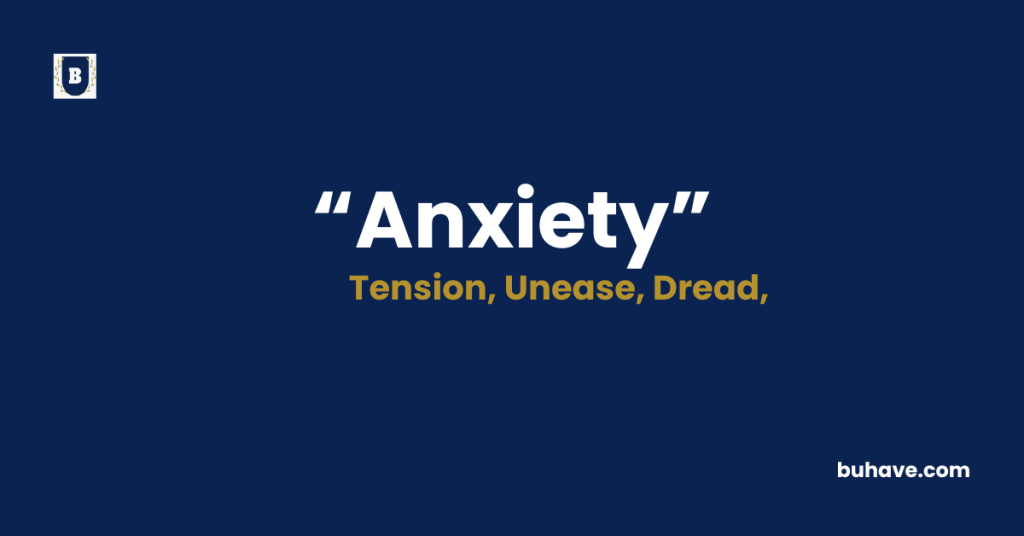The word ‘Anxiety’ (Noun) refers to a feeling of worry, nervousness, or unease about something with an uncertain outcome. In this guide, you’ll discover the full meaning, definition, origin, examples, synonyms, antonyms, and common questions related to ‘Anxiety’.
Anxiety Explained in Depth
A complete and detailed guide to the word ‘Anxiety’ including meaning, definition, examples, etymology, synonyms, and antonyms.
Meanings of Anxiety
Anxiety describes a state of mental discomfort, tension, or fear, typically about something that may happen. It is often linked to stress or apprehension about future events or uncertain situations. In some cases, it may also refer to a psychological condition involving excessive or persistent worry.
Definition
Anxiety is defined as a feeling of nervousness or worry, usually about an imminent event or something with an uncertain result. Medically, it refers to a mental health disorder characterized by persistent excessive worry that may interfere with daily activities.
Etymology
The word “anxiety” comes from the Latin anxietas, meaning “distress or uneasiness,” which derives from angere, meaning “to choke” or “to torment.” It entered English in the early 16th century, retaining its emotional and physical implications.
Example Sentences
- She felt overwhelming anxiety before giving her speech.
- Test anxiety affected his ability to concentrate during exams.
- Moving to a new city brought both excitement and anxiety.
- He sought therapy to manage his chronic anxiety.
Anxiety Synonyms
- Worry
- Nervousness
- Apprehension
- Tension
- Unease
- Fear
- Agitation
- Restlessness
- Panic
- Concern
Anxiety Antonyms
- Calmness
- Peace
- Confidence
- Assurance
- Composure
- Relaxation
- Tranquility
- Serenity
- Security
- Contentment
FAQs about Anxiety
Here are some frequently asked questions (FAQs) about the word “Anxiety”
1. What causes anxiety?
Anxiety can be triggered by stress, trauma, life changes, genetics, brain chemistry, or underlying health conditions.
2. Is anxiety a mental illness?
Yes, when persistent or severe, anxiety may be diagnosed as a mental health disorder such as Generalized Anxiety Disorder (GAD), panic disorder, or social anxiety disorder.
3. How is anxiety treated?
Treatment may include therapy (especially cognitive behavioral therapy), medication, lifestyle changes, and relaxation techniques.
4. Can anxiety be beneficial?
In moderate amounts, anxiety can alert us to danger or motivate preparation. However, too much can interfere with daily life.
5. What’s the difference between anxiety and fear?
Fear is a reaction to a known or immediate threat, while anxiety is concern over a possible or unknown threat in the future.

















